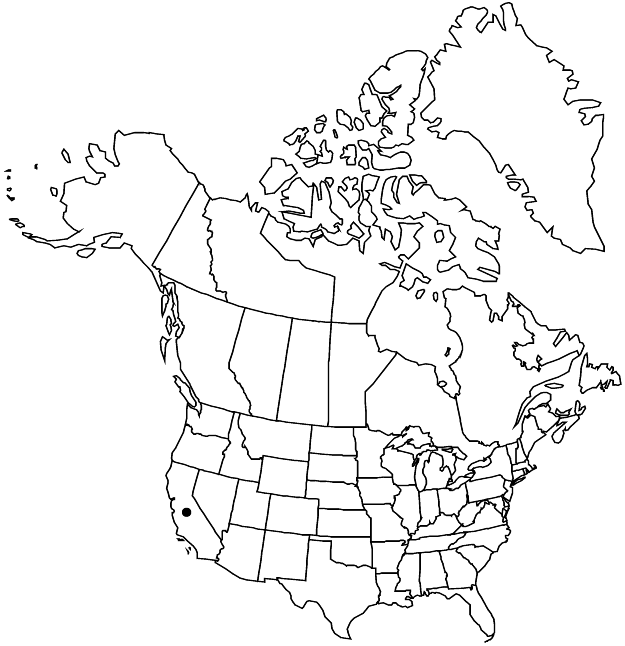Difference between revisions of "Limonium perezii"
Rhodora 18: 158. 1916.
FNA>Volume Importer |
imported>Volume Importer |
||
| (3 intermediate revisions by 2 users not shown) | |||
| Line 6: | Line 6: | ||
|place=18: 158. 1916 | |place=18: 158. 1916 | ||
|year=1916 | |year=1916 | ||
| + | }} | ||
| + | |special_status={{Treatment/ID/Special_status | ||
| + | |code=I | ||
| + | |label=Introduced | ||
}} | }} | ||
|basionyms={{Treatment/ID/Basionym | |basionyms={{Treatment/ID/Basionym | ||
|name=Statice perezii | |name=Statice perezii | ||
|authority=Stapf | |authority=Stapf | ||
| + | |rank=species | ||
|publication_title=Ann. Bot. (Oxford) | |publication_title=Ann. Bot. (Oxford) | ||
|publication_place=22: 116. 1908 | |publication_place=22: 116. 1908 | ||
| Line 28: | Line 33: | ||
|elevation=0-100 m | |elevation=0-100 m | ||
|distribution=Calif.;Atlantic Islands (Canary Islands). | |distribution=Calif.;Atlantic Islands (Canary Islands). | ||
| + | |introduced=true | ||
|tables= | |tables= | ||
|references= | |references= | ||
| Line 36: | Line 42: | ||
-->{{#Taxon: | -->{{#Taxon: | ||
name=Limonium perezii | name=Limonium perezii | ||
| − | |||
|authority=(Stapf) F. T. Hubbard | |authority=(Stapf) F. T. Hubbard | ||
|rank=species | |rank=species | ||
| Line 51: | Line 56: | ||
|publication title=Rhodora | |publication title=Rhodora | ||
|publication year=1916 | |publication year=1916 | ||
| − | |special status= | + | |special status=Introduced |
| − | |source xml=https:// | + | |source xml=https://bitbucket.org/aafc-mbb/fna-data-curation/src/2e0870ddd59836b60bcf96646a41e87ea5a5943a/coarse_grained_fna_xml/V5/V5_1237.xml |
|genus=Limonium | |genus=Limonium | ||
|species=Limonium perezii | |species=Limonium perezii | ||
Latest revision as of 22:09, 5 November 2020
Leaves all in basal rosettes, living at anthesis, to 30 cm; petiole winged distally, to 18 cm, usually exceeding blade; blade round to broadly ovate or subcordate, to 15 × 9 cm, leathery, base subtruncate (abruptly narrowed) and then decurrent, margins entire, apex cuspidate, cusp to 5 mm, soon falling; main lateral veins pinnate. Inflorescences: axes not winged, to 100 cm × 7 mm, glabrous to puberulent (hairs ca. 0.1 mm); nonflowering branches absent; spikelets moderately to densely aggregated at tips of branches, internodes mostly 2–4 mm; subtending bracts 3–6 mm, acute or aristate (outer) to truncate (inner), ciliate or fimbriate at margins, surfaces glabrous or minutely appressed-pubescent; flowers 1–2 per spikelet. Flowers: calyx blue-purple in distal 1/2, with reddish brown, glabrous ribs, funnelform; tube ca. 5 mm, minutely pubescent along proximal end of ribs (hairs less than 0.1 mm); lobes spreading, ca. 5 mm (5 main lobes with shallower lobes between larger lobes), or lobes indistinct and calyx appearing erose or irregularly lobed at mouth; petals whitish, barely exceeding calyx. Utricles 4–5 mm. 2n = 14.
Phenology: Flowering Mar–Sep.
Habitat: Disturbed coastal areas, cliffs, sand dunes, roadsides (where it is sometimes planted)
Elevation: 0-100 m
Distribution

Introduced; Calif., Atlantic Islands (Canary Islands).
Discussion
Selected References
None.